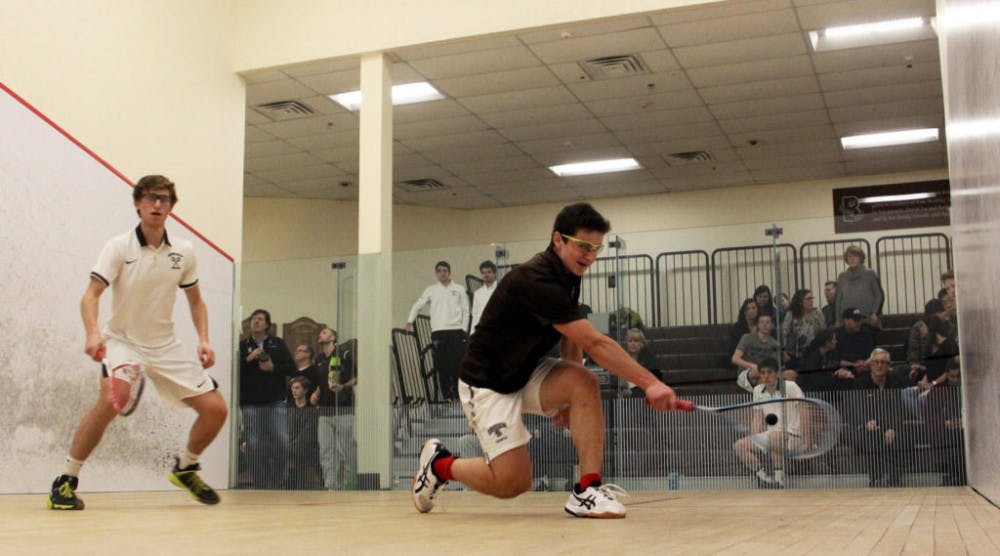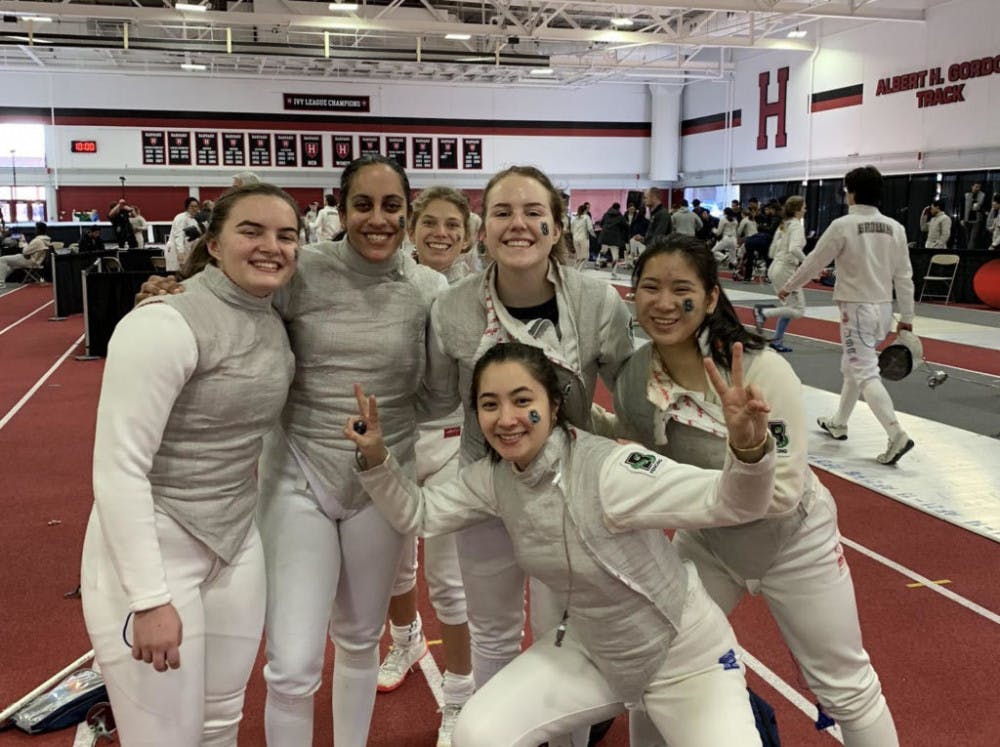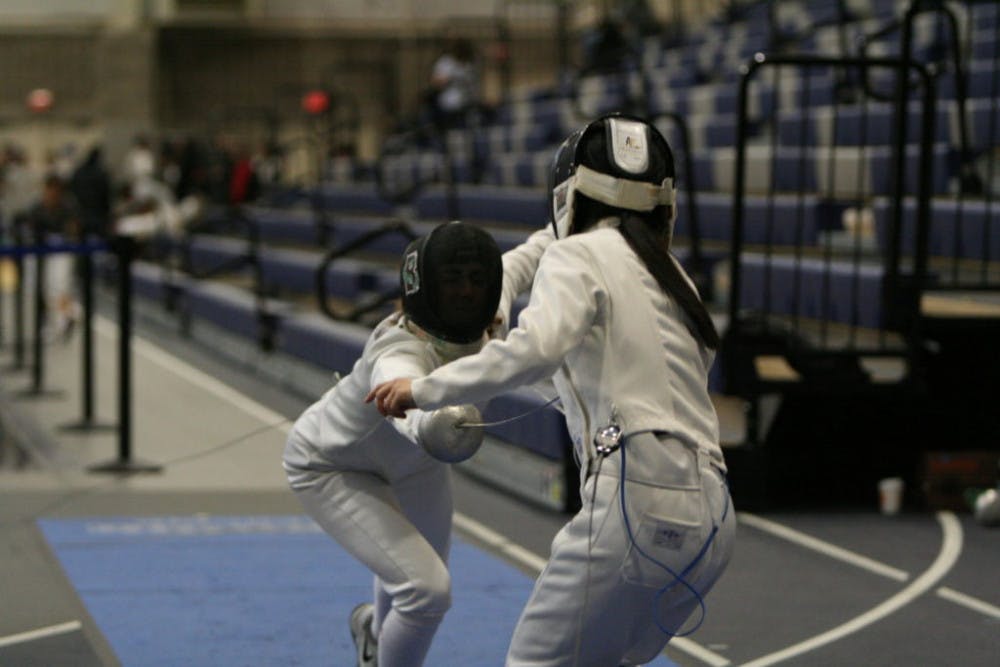Following the University's decision to cut 11 teams as part of the Excellence in Brown Athletics initiative, The Herald invited 100-word submissions from individuals impacted by the decision. The opinions team selected and lightly edited 10 blurbs from former varsity student-athletes and alums on the cut teams describing their reactions to the decision. Blurbs regarding the Men's track, field and cross country team were removed as the varsity status of these three teams was reinstated June 9.
Jacob Good ’22 (Men’s Squash):
When I created an extreme training schedule the summer before my freshman year, did it pay to push further? Was it necessary to miss high school classes to play in junior squash tournaments? Was I right to skip numerous family and friends events for my intense training schedule? When I sprained my MCL and fractured my knee in a match this year, was it wise to complete an intense physical therapy process? Was chasing my dream of playing varsity squash at Brown worth it? I guess not.
[caption id="" align="aligncenter" width="650"]

Kyle Reyes ’23 (Men’s Fencing):
We were on the rise. For the first time in five years, my team won against an Ivy League school (UPenn). Just the motivation we needed. With enough grit and more talented recruits coming in, we had every reason to believe that the underdogs would soon become Ivy League champions. But in a five-minute call, that dream was crushed. The most talented and hardworking individuals I know were nothing but statistics to the administration. It felt like we were being punished for our hard work. And to top it all off, there was no warning. No consideration. No transparency.
Anna Susini ’22 (Women’s Fencing):
I thought Brown listened to its students, yet this decision was made with no communication, no transparency, and no student or coach representation. I’ve been fencing competitively for over eight years. All the 6 am wakeup calls, the cross-country road trips, the frenzied late-night studying under an airplane overhead light, the sore muscles, the endless hours of practice – it was all worth it the day I found out I would be fencing for Brown. It was all demolished in the span of a ten-minute phone call. This decision is not just devastating; it goes against everything Brown stands for.
[caption id="" align="aligncenter" width="650"]

Lauren Rogoff ’05 (Equestrian):
Brown Equestrian has been one of Brown's winningest teams: we came in the top 5 at Nationals (top 15 teams in the country, out of approximately 285 schools) 5 times in the last 20 years, Brown has the best athlete in IHSA history (Amanda Forte), and we completely dominate the Ivies: we were the first Ivy League school to go to Nationals, and have more Nationals appearances than the rest of the Ivies combined. To claim that cutting this sport furthers the stated goal of athletic excellence for Brown is factually false, because this already excellent team cannot thrive, or even exist, without varsity status.
Audrey Kim ’21 (Equestrian):
I never did horseback riding seriously before college - there was too much instability in my childhood to have access to the sport. But in my sophomore year at Brown, I went to Equestrian tryouts on a whim. Turns out, it was one of the best decisions I’ve made. Our barn was a safe haven for me during waves of stress. Horse shows helped me foster resilience. My amazing teammates have shown me what support truly feels like. Without my team's varsity status, I would have been unable to afford the opportunity to grow closer to the woman I want to be.
Daphne Maniatis ’23 (Equestrian):
I was a member of the Varsity Equestrian team coached by Michaela Scanlon. Michaela has devoted 23 years to coaching the Equestrian team, pouring her heart and soul into it. Demoting Equestrian to club status takes away her job and health insurance during a global pandemic, and deprives us of a fantastic teacher. Michaela was given no opportunity to provide input on this decision or to prove the competitiveness and excellence of the team she has built. This is not how Brown should treat anyone, let alone an effective and beloved coach with a quarter-century commitment to the University.
Chelsea Hamilton '03 (Captain) and Kate Segarra ‘02 (Equestrian):
Brown Equestrian is the winningest Equestrian team in the Ivies. Within five years of transitioning from club to varsity, we won our Region, made it to Nationals, and won All-Ivies. Yet our financial burden to the University is limited: Our total expenses per athlete are second lowest among women's sports. Moreover, our alumni donors cover more than half our costs; we currently sit at top five in donor participation across Brown sports. Varsity status appeals to top rider-scholars and provides access to less-privileged athletes by guaranteeing them funding. President Paxson, how will removing a successful, low-cost team make other Brown sports more competitive?
Sophie Ulene ’20 (Captain) (Women’s Fencing):
I had the privilege of leading Brown Fencing for its final season. On the strip, we won conference meets and produced NCAA qualifiers. In the classroom, Women’s Fencing was Brown’s only women’s team with a perfect APR score for 15 years straight. While this reallocation of funds may someday produce more wins for Brown athletics overall, the Brown that I love and called home did not define “excellence” merely as “winning.” My Brown works to elevate its students rather than giving up on them. Brown Fencing is — by all definitions of the word — excellent, and I refuse to be its last captain.
[caption id="" align="aligncenter" width="650"]

Toby Cohen ’09 (Men’s Fencing):
It's really heartbreaking to see such great programs cut and to have that decision be painted as promoting excellence and diversity — particularly in the case of cutting track while promoting sailing. These teams, largely niche, are more competitive (on the field and off) than some of the more mainstream sports. I came to Brown specifically because of the attitudes of individualism and fearlessness espoused by the Open Curriculum. It's no coincidence that this decision comes two years after ESPN invests more money in Ivy League football and basketball. Brown is being followers, not leaders, and that’s not the Brown I know.
Kate Esselen ’02 (Women’s Squash):
I chose Brown (over other Ivy League and elite schools) for the squash program, along with the academics and the culture of the school. No single class or experience while at Brown was more meaningful than my participation on the squash team. The only mentor from my undergraduate years that I am still in touch with is our coach, Stuart LeGassick. The culture of hard work, sportsmanship, camaraderie, and commitment to excellent academics he instilled in all of us prepared me for my long journey through medical and business school after Brown. To take this experience away from current and future students is devastating and will be a loss to the entire Brown community.





